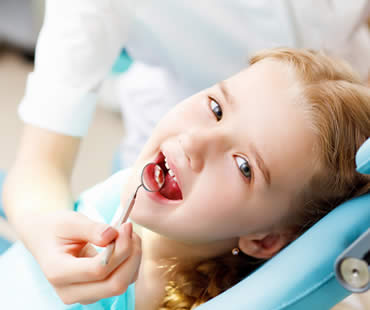
by Dr. Adkins | Jul 9, 2021 | Blog, Dental Topics 1, General Dentistry
Your body is a little bit like a puzzle. It gives you clues to help you figure out what’s going on within your body. Did you know your mouth can give you hints about things that may be happening elsewhere in your body? Here’s a list of some of the signs your mouth can give you to pay attention to certain other aspects of your health.
Worn teeth and headache
If your teeth are showing extensive wear, you may be grinding your teeth. This would be even a stronger possibility if you’re also experiencing regular headaches, which can be caused by the muscle tension related to teeth grinding. This condition also indicates that you are likely under too much stress, and that you are unconsciously coping with it by grinding your teeth.
Gums covering teeth
If your gums begin to grow over your teeth and you are on medication, it may mean that your medication is at fault. Some medicines can cause your gums to overgrow, and the dosage needs to be adjusted.
Mouth sores
An open sore in your mouth that doesn’t go away in a couple of weeks can be an indicator of oral cancer. Numbness and unexplained bleeding in your mouth are other signs. Smokers and people over age 60 are at the most risk, but that doesn’t mean it doesn’t affect others too. See your dentist to make sure all is okay.
Cracked teeth
If your teeth begin to crack or wear extensively, you may have gastroesophogeal reflux disease (GERD). It’s a digestive disease that allows stomach acid to flow back into your food pipe and mouth. This acid can cause your teeth to deteriorate. Additional signs of GERD are acid reflux, heartburn, and dry mouth.
Unclean dentures
If you wear dentures, make sure you remove and clean them regularly. Inhaling food debris from your dentures that makes its way to your lungs can lead to pneum

by Dr. Adkins | Jun 18, 2021 | Blog, Dental Topics 2, General Dentistry
The fact is that the health care provider most people should see the most is their general dentist. Because this branch of healthcare is uniquely targeted at preventing disease and promoting good hygiene, general dentistry can help you avoid oral concerns and maintain a healthy and attractive smile.
General dentists are the most common providers for dental treatment for patients of all ages. Routine dental visits involve examinations, sometimes diagnostic tests, professional cleanings, and discussions about concerns. If your checkup reveals issues that require further treatment, most general dentists perform required procedures. However, your general dentist may refer you to a specialist for complex treatments.
What does a general dentist do? Differing from specialists who focus on a certain area of oral care, general dentists offer a wide variety of services.
- Preventive services – The goal of preventive dentistry is to stop disease before it has a chance to progress. Regular exams, diagnostic images, and professional cleanings are part of prevention. Proper oral hygiene techniques will also be discussed.
- Restorative services – Procedures for dental problems falls into this category, including fillings, crowns, gum disease remedies, dentures and more. Some general dentists also offer specialized treatments like root canal therapy and dental implants.
- Overall oral health services – Some dental problems are reflected in overall health concerns. Diabetes, cardiovascular disease, pregnancy complications and other problems may arise. General dentists can identify issues like these and offer treatment or direct you to the right specialist.
- Cosmetic services – Many general dentists offer cosmetic treatments such as dental veneers, teeth whitening, bonding, orthodontics and more.
When should you visit your general dentist? Experts recommend getting checkups every six months, or more often if you have an issue that should be addressed like a toothache or gum bleeding. Cosmetic appointments can be made at any time. The main thing is seeing your general dentist regularly so you can benefit from preventive care.
If you need a dentist in McDonough contact us today

by Dr. Adkins | Jun 11, 2021 | Blog, Dental Topics 2, General Dentistry
Restorative dentistry has made incredible advancements in the technology of restorative dental materials, and there are more options than ever today for your dental crown or dental bridge. Zirconium and porcelain have proven to provide lasting strength and durability, exhibiting the most natural cosmetic dental restorations available today. Each tooth in each mouth is different, however, and in some cases, resin composite or metal alloy might be the choice recommended for you.
Metals are a common choice for dental crowns and dental bridges. Gold or palladium alloys, as well as chromium or nickel (base-metal) alloys can be excellent choices. Metal alloy crowns show the least “wear down” over years of use. They almost never chip, break or wear down opposing teeth. The primary complaint about metal alloy materials is that their color is metallic and thereby unnatural. They will not blend with the surrounding teeth, and as such, they are chosen more for back molars where they won’t draw attention.
Dental composite/resin materials are a popular choice that can be made to blend with the surrounding teeth, but they’ve been shown to wear down over time and are more prone to fractures and breaking than other materials.
Porcelain can be fused to metal to form a natural-appearing crown or bridge, and because of their appearance, are a good choice for front or back teeth. Over time, however, discoloration can appear along the gum line as the porcelain wears away, leaving a dark, unsightly line. The porcelain can be fused to zirconium, however, which eliminates the dark line and is a good cosmetic choice for front teeth.
Crowns and bridges can also be made from all-porcelain or all-ceramic materials. These materials are the best choice for natural-looking teeth of the types of dental crown and dental bridge materials available in restorative dentistry today. Because they contain no metal, they are excellent choices for patients with metal allergies. They tend to be weaker and less durable than materials containing metals, however.
Talk to your cosmetic dentist today with any questions you have regarding what type of dental crown or bridge material is best for your smile needs.
Our dental office is located in McDonough

by Dr. Adkins | May 28, 2021 | Blog, Dental Topics 1, General Dentistry
What you eat and drink can affect your oral health. A balanced diet will boost your body’s natural immune system, helping to lower your risks for oral problems. There are also certain foods and drinks that you should avoid in order to pave the way for healthy gums and strong teeth. Read on to learn how to ensure that your smile is safe and strong.
Cut down on snacks
Try to limit snacking between meals. The more often you eat, the more bacteria is stimulated and more acid is created. It is especially harmful to snack on sweet or starchy foods, which can harm your teeth and gums more quickly.
Limit sugar
Avoid foods and drinks that are high in sugar. It can stick to your teeth and if not removed promptly and thoroughly, can lead to tooth decay.
Watch what you drink
Drink plenty of water, and avoid sodas and fruit juices. Both of these can be sugary and acidic, which can harm your tooth enamel and cause decay.
Maintain a healthy diet
Try to eat a balanced diet consisting of the five major food groups. A well-balanced diet provides the vitamins, minerals, and other nutrients that your teeth and gums need. Fresh vegetables and fruits, and foods rich in calcium, are good choices for your oral health.
Practice good oral hygiene
Contact our McDonough dental office to learn about good dental hygiene techniques that will help you prevent tooth decay and gum disease. Brush your teeth at least twice a day, floss daily, and see your dentist for regular checkups.
If you need a dentist in McDonough contact us today

by Dr. Adkins | May 21, 2021 | Blog, Dental Topics 2, General Dentistry
Keeping your teeth and gums in good condition can mean the difference between being embarrassed to smile and being happy to display your pearly whites. Your smile is one of the first things people notice, so here are some things to add to your dental care routine so that your teeth are sparkling and healthy.
Brush after consuming staining items:
Avoid foods and drinks that are known to stain your teeth, such as coffee, red wine, colored gravies, and dark colas. Brush your teeth as soon as possible after consuming such items. If brushing isn’t possible, try eating an apple to help clean away staining residue.
Change your toothbrush:
Old bristles that are out of shape and worn harbor bacteria and don’t as good of a job as newer brushes. Change your toothbrush every three months, or when it starts to look worn. Remember to choose a brush with soft bristles for the best treatment of your teeth and gums.
Floss regularly:
Use dental floss at least once every day to clean between your teeth and along your gums. Carry floss with you so that you can quickly use it in private moments after a meal or bothersome snacks.
Use mouthwash:
Add mouthwash to your daily routine to help kill bacteria that your toothbrush doesn’t reach. It also can help improve your breath.
See your dentist:
No matter how well you care for your mouth, see your dentist every six months for checkups and professional cleanings. This will not only keep your teeth bright, it will catch any problems early in hopes of avoiding more extensive dental work in the future.
Our dental office is located in McDonough

by Dr. Adkins | Apr 23, 2021 | Blog, Dental Topics 2, General Dentistry
Finding the right dentist is an important decision because it’s a healthcare relationship that can last a lifetime. The need for dental care starts around age one and continues through senior adulthood. For routine dental care, you might choose to see a family dentist or a general dentist. Although there are some similarities, the two types of dentists have some unique aspects.
Services:
Both types of dentists offer routine services that are common to oral health care. This includes examinations, cleanings, x-rays, and fluoride treatments. Instructing patients about dental hygiene such as proper brushing and flossing is part of most family and general dentistry practices as well. Poor oral care can cause decay, infections, gum disease, or other problems. Both types of dentists also offer treatment for when problems arise, such as dental fillings.
Patients:
General dentists often cater to patients in a certain age range, but family dentists provide treatment for patients of all ages. Infants, children, adolescents, adults, and seniors are all able to seek oral health care from a family dentist. Each age group has unique needs and issues, but family dentists are skilled in caring for everyone.
Specializations:
Since they see all ages of patients, family dentists are skilled in a wide variety of procedures. They are able to diagnose and treat many oral health conditions, including gum disease and oral cancer. Typical procedures they offer include tooth extractions, root canals, fillings, crowns, bridges, and sealants. Some are able to perform specialty services like implants and veneers. Many patients enjoy being able to obtain treatment from their family dentist without having to see a specialist.
Benefits:
In addition to the benefit of getting a variety of treatments in one location, family dentists are also able to provide ongoing treatment for all household members. Children and parents go to the same location and can even request back-to-back appointments. Everyone learns the same dental care techniques that they can practice at home together. Family dentists encourage every member of the family to take pride in their oral health.
If you live in the McDonough area contact us today








 (470) 665-5292
(470) 665-5292  E-Mail Us
E-Mail Us 
